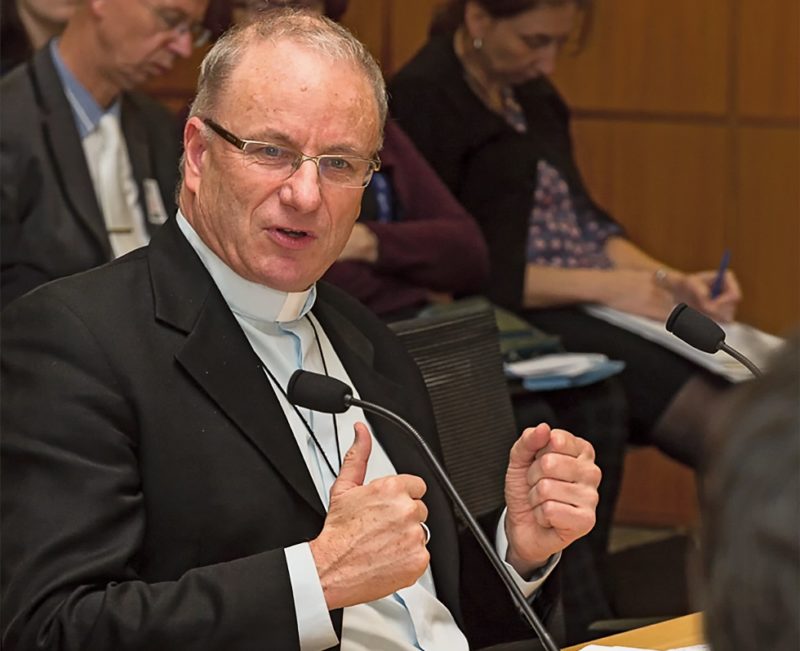Palmerston North Bishop Charles Drennan has called ACT leader David Seymour’s End of Life Choice Bill “deeply cynical” saying the title tricks people into thinking that euthanasia or assisted suicide is something good.“End of Life Choice Bill. We love choice, rate it highly, and react strongly to its suppression. It’s true, choice is usually good. But it is not always good. No one advocates choosing cigarettes or drunk driving or breaking the rules of a sport,” Bishop Drennan said.
“What is always good, is to choose what is right or dignified or best. Choosing what is wrong never makes sense.”
Bishop Drennan, the New Zealand Catholic Bishops Conference secretary, led Catholic agencies in expressing serious reservations over the bill at the Justice Select Committee on June 11.
One of the MPs said she agreed with Bishop Drennan about the nation’s shame over high youth suicide rates but insisted that assisted suicide is different.
“Just because someone is old, or terminally ill, or mentally unwell it all becomes OK?,” Bishop Drennan asked.
In a debriefing after the submission, Bishop Drennan noted “That’s what we are up against: not so subtle ageism, and a very unsubtle belief that some lives matter more than others and that some are not worth anything but death. That’s tragic.”
Bishop Drennan said euthanasia is regressive. The bill, if passed, would be “a backward step, unnecessary, unethical, and un-Kiwi”.
He argued that “New Zealand prides itself on being a progressive nation and to be truly progressive is to challenge ageist attitudes and eliminate the sense that being sick
or old or dependent equates to being a burden”, he said.
Dr Caroline Newson, who works in acute psychiatry medicine, said the bill would contradict the Government’s pledge to better support mental health.
“This bill places a heavy burden upon the medical profession to aid in the suicide of, or actively kill, a person who seeks such an end to their life and is deemed to satisfy
the bill’s eligibility criteria,” she said.
Caritas director Julianne Hickey said powerlessness is a major concern that Government should figure in the debate.
“We must be absolutely certain that the powerlessness, exploitation and lack of choice that many New Zealanders face in homes, workplaces and communities is not present in the hour of their death,” said Mrs Hickey.
“An unfair employment situation may be compensated; a tenant may have home repair issues resolved; a person living with violence may be able to be removed to a safe place.
But an unfair or pressured decision to end someone’s life cannot be resolved, because there is no remedy for death,” she added.
The Nathaniel Centre director Dr John Kleinsman warned against the slow creep of eligibility and cited international examples where the year on year numbers of people
dying by euthanasia is rising steeply.
The practice of euthanasia is contributing to a “new norm around dying” in places such as Belgium and the Netherlands whose regimes are very similar to the proposed
legislation, Dr Kleinsman said in his submission.
The timetable for the Justice Select Committee’s report on the End of Life Choice Bill has been extended after a record number of submissions were received.
The select committee will report back to Parliament at the end of March next year.

Reader Interactions